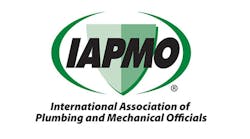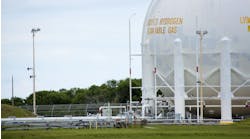ROLLING MEADOWS, IL — Little scientific research exists on the relationship between low flow rates and opportunistic waterborne pathogens in plumbing systems. That’s why Plumbing Manufacturers International (PMI) today announced a request for proposal for a test protocol and budget—due Aug. 26, 2016—supporting research that examines whether the trend toward the ongoing lowering of flow rates in plumbing systems create unintended consequences on potable water quality.
“Without much empirical data to date, there isn’t a definition for what constitutes ‘safe’ flow rates in relation to opportunistic pathogen growth, which may put the public at risk,” said Matt Sigler, technical director at PMI. “PMI is looking to select a thoughtful research proposal and ultimately an experiment that addresses water quality impacts due to flow rates.”
Through the study, PMI will test the hypothesis that low flow rates yield a greater proliferation of opportunistic pathogens in potable water and create unsafe conditions. Potable water should be satisfactory for drinking and for culinary and domestic uses.
As part of the request for proposal, respondents need to provide a well-defined experiment protocol with budget requirements. The experiment should be simple, reproducible and run long enough to achieve a steady state, with both controlled water source chemistry and a controlled source of opportunistic pathogens. Flow rate ranges should also represent the minimum and maximum levels typical to premise plumbing systems. Other required proposal elements include showing:
- Measured test parameter data logged over the life of the project.
- Influent and effluent sampling of water at prescribed intervals.
- Biofilm sampling at prescribed location and times during the testing.
- Project report including the charted data, a description of any anomalies observed during the testing and a summary of the findings versus the original hypothesis.
Proposals are due by Aug. 26, 2016 at 5:00 p.m. CDT. Submissions should be addressed to Matt Sigler, technical director at PMI, and sent to [email protected]. More information about the request for proposal is available at https://www.safeplumbing.org/news/blog/article/pmi-research-project-request-for-proposal-flow-rate-and-pathogen-growth. Questions should be directed to Mr. Sigler at least 48 hours in advance of the deadline.


